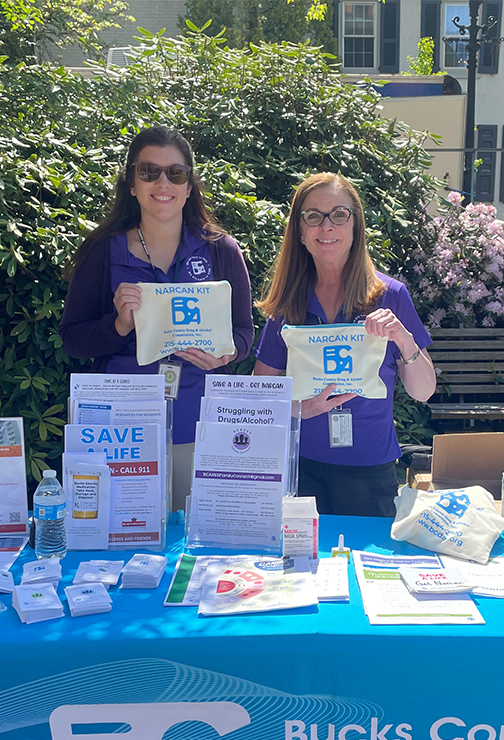WE ARE HERE TO HELP.
Welcome to the Bucks County Drug & Alcohol Commission, Inc. (BCDAC, Inc.) website! We are pleased to offer online resources that are available for Bucks County, PA residents. If you or a loved one is struggling with drug and alcohol use, help is waiting all across Bucks County. There are many resources to help you with a plan that will work for you. Let us help you take a step toward recovery. There is hope – as there are over 25 million Americans living in long term recovery from substance use disorders. We are here to help.
- W. Joshua Buchanan, Chair, BCDAC, Inc. Board of Directors & Diane W. Rosati, MA, Executive Director, BCDAC, Inc.
Learn MoreWHAT'S HAPPENING
LATEST NEWS
Medication Take Back Day is April 27, 2024!
Bucks County Drug & Alcohol Commission, Inc. Launches Redesigned Website
Bucks County Drug & Alcohol Commission, Inc. Joins 2023 Gift Responsibly Campaign to Raise Awareness of Youth Gambling Risks
Bucks County Medication Collection a Success!
Medication Take Back Day is Oct. 28, 2023!


Our Mission
Promoting healthy individuals, families and communities; eliminating the misuse, abuse and/or addiction to alcohol, tobacco and other drugs; and supporting those in recovery from addiction.


